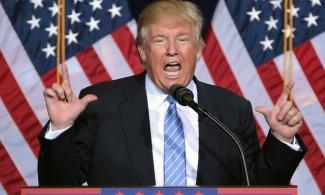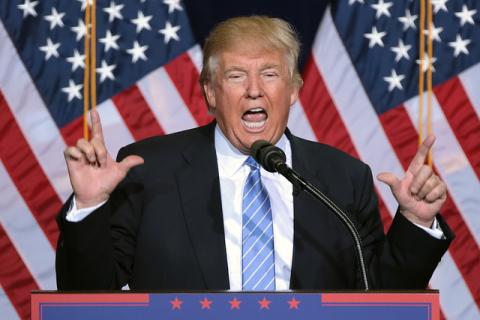
US President Donald Trump decided Tuesday to end the protected status of thousands of Liberian migrants to the United States and gave them a year to leave the country.
US President Donald Trump decided Tuesday to end the protected status of thousands of Liberian migrants to the United States and gave them a year to leave the country.
It’s the latest of similar moves, after more than 250,000 Salvadorans, Haitians and Nicaraguans lost their protected status under an administration which has made cracking down on immigration a priority.
In 1991, when the West African country was in the grip of civil war, some Liberians living in the US were given “temporary protected status” to allow them to remain in safety.
Then in 1999 approximately 10,000 of them were made eligible for “deferred enforced departure,” or DED, by then-president Bill Clinton, allowing them to continue to build new lives.
Presidents George W. Bush and Barack Obama have periodically renewed the DED status, but Trump has now decided to allow it to expire, deeming Liberia safe for returnees.
Trump has taken a tough stance on immigration in general and, in reported private conversations, an even tougher stance on Africans from what he has reportedly deemed “shithole countries.”
The latest grace period expires on March 31, but Trump said in a letter to the Department of Homeland Security that he would accord the Liberians a 12-month “wind-down” period to prepare their departure.
“Through consultation with appropriate executive departments and agencies and my advisors, I have been informed that conditions in Liberia have improved,” Trump wrote.
“Liberia is no longer experiencing armed conflict and has made significant progress in restoring stability and democratic governance,” he argued.
Trump admitted that the 2014 outbreak of the Ebola virus in West Africa had brought “tragic loss of life and economic damage” to Liberia, one of the world’s poorest countries after years of civil war.
But he declared himself satisfied with Liberia’s progress in tackling the disease.
It is not clear how many of the original 10,000 DED recipients may have died, moved on voluntarily or been granted another form of legal US residency — but the rest face an uncertain future.
Opponents of Trump’s move warned it would uproot many who had made new and productive lives for themselves in the United States.
Minnesota Senator Amy Klobuchar, a Democrat, noted on Twitter that, thanks to the previous presidents’ DED extensions, the Liberians had been living in the United States legally since 1992.
“Many work in Minnesota hospitals and nursing homes,” she wrote. “I won’t give up this fight. We have a year.”
